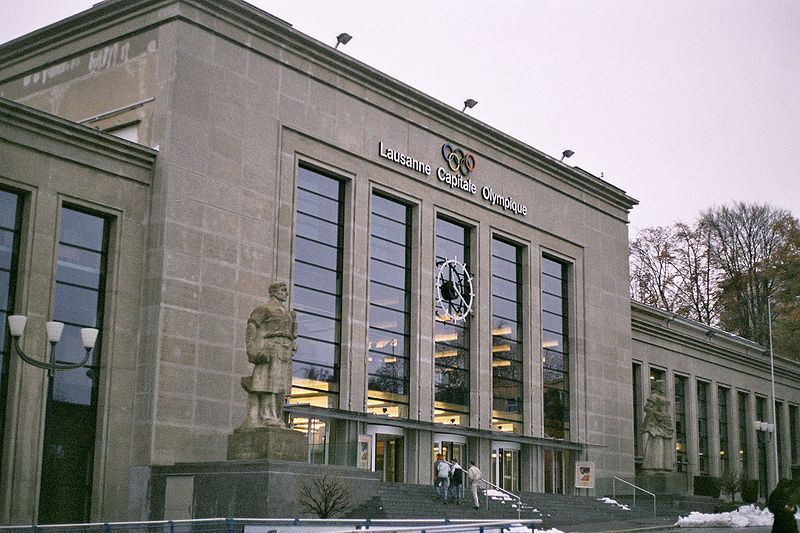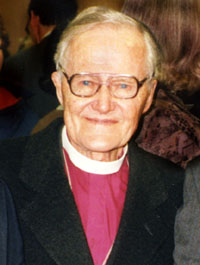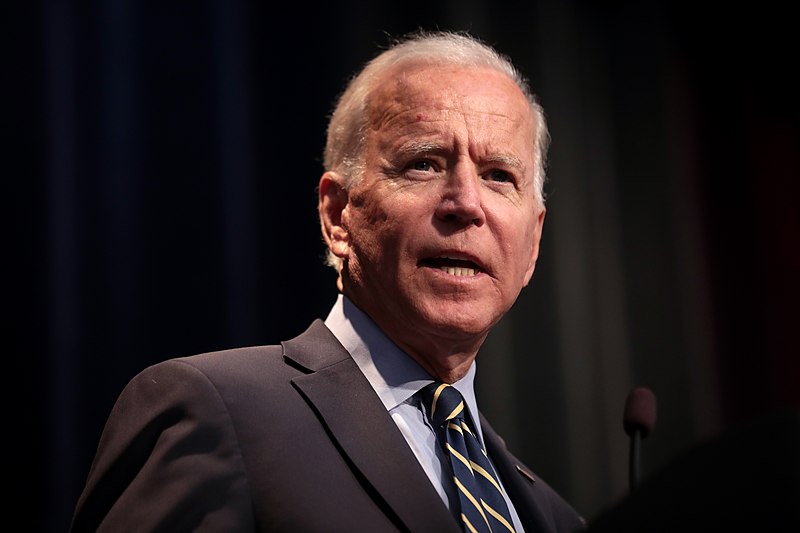自分のことを「白人福音派のハーフ」と言うことがある。「福音派のハーフ」ではなく、「白人のハーフ」という意味だが、そこには少しばかり込み入った事情がある。
私は日本人とのハーフで、その信仰は白人的な社会での経験を基盤としている。そして、そのほとんどは福音派の社会だ。この「白人的福音派」は自分の故郷のようなものだが、最近はそれがどんどん理解しがたいものとなっている。
[toggle]I sometimes quip that I am half of a white evangelical; that is, I am half-white, not half-evangelical. But the joke points to a greater complexity. I am half-Japanese, but my faith has largely been shaped by culturally white institutions, many within a broadly evangelical orbit. And even though I come from this white evangelical world, I find it increasingly difficult to understand. [/toggle]これは私だけの話ではない。近年、ジョン・フィーの『ビリーブ・ミー(信じてくれ)』やトーマス・キッドの『福音派とは誰か』など、重要な本が出版されているが、それでも「福音派」の意味については、信徒であるなしに関係なく、正しく理解できていない人が多い。

1974年のローザンヌ世界伝道国際会議に福音派指導者が集まったスイス、ローザンヌのコングレス・エキシビション・センター(写真:Rama)
世界における「福音派」とは、「聖書」「弟子訓練」「信仰を公に告白すること」を重視するプロテスタントの一派とされている。それはローザンヌ世界伝道国際会議や国際福音主義学生連盟(IFES、日本においてはKGK)などのムーブメントにも発展している。
[toggle]I’m not the only one. Despite recent important books like John Fea’s Believe Me and Thomas Kidd’s Who Is an Evangelical?, the meaning of evangelical continues to befuddle religious and nonreligious alike. Around the globe, evangelicalism connotes a subset of Protestant Christianity that prioritizes Scripture, discipleship, and public expression of faith, as reflected in movements like the Lausanne Committee for World Evangelization and the International Fellowship of Evangelical Students. [/toggle]一連の国際的なムーブメントは、何もない状態から突如として発生したわけではなく、その一部にはキリスト教的というよりもむしろ西洋的というべき概念が取り入れられている。そして、世界的な福音派と米国の福音派の間には、その理解に隔たりがある。米国の福音派は「白人保守派クリスチャン」と同じ意味で扱われており、最近はトランプ大統領についての見解にその特徴が見いだされることが多い。
[toggle]These global movements did not emerge in a vacuum, and some of them import norms that are more Western than Christian. But global evangelicalism differs from the way the label is now understood in the US, as a synonym for white conservative Christians who are increasingly defined by their views about President Trump. [/toggle]このクリスチャン層は都市部・農村部を問わず、近所づきあいや職場、教会、学校でも白人としかつながりを持たない傾向がある。もちろん全員ではないが、そういったケースが大多数だ。
そしてその傾向は、世界各地で行われている伝道活動にもマイナスに働くことが多い。白人の福音派クリスチャンは、米国の大部分で(そして世界的な教会情勢でも)ますます非白人が増えている現実に追いついていないのだ。
[toggle]These Christians—whether in urban or rural settings—tend to be isolated in largely white neighborhoods, workplaces, churches, and schools. Not all of them, to be sure. But most. And this insularity often undercuts their own interests and their witness to the watching world. White evangelicals are losing touch with broad segments of this country (and with the global church) that are increasingly nonwhite. [/toggle]
レスリー・ニュービギン
この文化的文脈において、「福音派」が意味することも、神学的というより政治的な色彩を帯びるようになった。ただし、この政治的側面は昔からあったことだ。福音派が最近になって「神学的立場より人種的・政治的立場を重視するように変化した」とするのは的を射ていない。むしろ、神学者のレズリー・ニュービギンが書いたように、「(社会現象としての)キリスト教は常に、そして必然的に、外の世界の社会状況によって形づくられてきた」と理解すべきだろう。
[toggle]In this cultural context, the meaning of evangelicalism has also become more political than theological. The political dimensions have always been there—it’s not quite right to intimate that evangelicalism recently “transform[ed] … from a theological position to a racial and political one.” Rather, as theologian Lesslie Newbigin has written, “Christianity as a social phenomenon has always and necessarily been conditioned as to its outward form by other social facts.” [/toggle]時代の変化による移ろいはあっても、米国で白人福音派が行ってきた宗教活動は、神学的思想と同時に人種や政治状況からの影響をいつも受けてきた。それでも、現代における政治への影響は深刻だ。白人の福音派クリスチャンは、「トランプに批判的な層」と「実利主義者」と「トランプ・ファン」という3つのグループに分けることができる。
[toggle]In the United States, the religion practiced by many white evangelicals has always been racial and political as well as theological, even if the relative intensity of each of these dimensions has varied over time. But today, the political dimension is particularly acute. It manifests in three categories of white evangelicals: Trump critics, pragmatists, and Trump lovers. [/toggle]米国を再びキリスト教国家に
[toggle]Make America Christian Again[/toggle]福音派有権者のうち81%がトランプに投票したことについては耳にすることが多い。しかし、残りの19%(共和党内の「反トランプ・グループ」、民主党およびその他の政党支持者を含む)は決してわずかな比率ではない。トランプに批判的な有権者の人数は、ユダヤ人やイスラム教徒の有権者全員を合わせた数よりもはるかに多いのだ。
そして19%以外にも、「反トランプ層」の白人福音派クリスチャンの中には、2016年の大統領選挙で投票に行かなかった人もおり、その人数はしばしば引用される投票の統計からは除外されている。世代間の違いを考慮すると、今後、白人福音派クリスチャンにおける反トランプ層の割合は増加すると考えられる。ただしそれは、若者世代がこれからも福音派を名乗ればの話だが。
[toggle]We often hear about the 81 percent of white evangelical voters who voted for Trump, but the 19 percent remainder—including Republican “never Trumpers,” Democrats, and third-party voters—is not a rounding error. These are the critics, and they include millions of voters, far more than all Jewish and Muslim voters combined. Beyond the 19 percent remainder, the critics also include a portion of white evangelicals who did not vote in the 2016 presidential election and who are therefore excluded from frequently cited polling numbers. Given what we know about generational differences, the percentage of critics among white evangelicals is likely to increase—if they continue to identify as evangelicals at all. [/toggle](現大統領に投票した)81%を見てみよう。この層はおそらく、今も教会で献身的に奉仕をするクリスチャンで、まだトランプを強く支持している。この層は「トランプ・ファン」と「実利主義者」に分けることができる。
トランプ・ファンたちは、米国をキリスト教のルーツに戻すために神がトランプを遣わしたと信じている。トランプをメシアに見立てたトマス・キンケード風の絵が描かれたり、ダラスのファースト・バプテスト教会の聖歌隊が「メイク・アメリカ・グレート・アゲイン(米国を再び偉大に)」という賛美歌を披露したりするなど、この人々はまるでキリストを見るかのように大統領のことを見ている。
「実利主義者」層は、大統領のことを好ましく思っていなくとも、真逆の価値観を持っているとされる民主党に対抗する唯一の選択肢としてトランプを捉えている。だから、トランプ政府が崩壊し、すぐに後継者が出てくることを望んでいるとも考えられる。
実利主義者たちがトランプに政権を託したことは、主要な政策目標がいくつか達成されたことを考えると、完全に見当違いではなかった。達成された政策とは、ジョンソン修正条項(宗教団体の政治活動を禁止する政策)の廃止や、「クリスマス戦争」(「メリークリスマス」の代わりに「ハッピー・ホリデイ」というフレーズを推進する風潮)を終わらせるといった程度のものではない。
[toggle]The pragmatists may not like the president, but they see him as their only option, pitted against a Democratic Party that they view as opposed to their values. The most pragmatic among them may be hoping for Trump’s political demise and the quick rise of a successor. The pragmatists are not entirely misguided in betting on Trump, who has delivered some of their key policy objectives. Not the rhetorical ploys to repeal the Johnson Amendment or end the “war on Christmas.” [/toggle]トランスジェンダーのトイレを作ろうとする宗教的な非営利団体に公的資金を拠出しないよう命じた大統領命令などは、民主党が政権を握れば、すぐに取り消されるだろう。トランプが最高裁判所や他の司法組織の担当官を任命したことは、それよりもはるかに長期間にわたって影響を及ぼすことになる。実利主義者層の一部にとってそれは、この「悪魔の契約」を正当化するのに十分な成功だ。
[toggle]Nor the executive orders on issues ranging from public funding of religious nonprofits to transgender bathrooms—which will be undone with a pen stroke by the next Democratic White House. But Trump’s success with the Supreme Court and other judicial appointments will have much longer staying power. And for some pragmatists, that success more than validates their Faustian bargain. [/toggle]実利主義者層の多くがトランプに固執するもう一つの理由は、民主党がその層に対してアプローチできていないからだ。「LGBTの権利」と「信教の自由」の間でどのような妥協案を出すかに関心を示した候補者は民主党から出ていない。

ジョー・バイデン(写真:Gage Skidmore)
中絶の問題も同様だ。ジョー・バイデン候補がハイド修正条項(緊急性のない中絶に公費を支出することの禁止)への立場を変えたことにより、「中絶手術に対する連邦予算の制限」を支持する有力な民主党候補はいなくなった。議論に使われるレトリックも、状況の改善には役立っていない。白人福音派に対して柔軟な姿勢をとらず、軽蔑さえ見せる民主党員はあまりにも多い。
[toggle]Another reason that many pragmatists are sticking with Trump is that Democrats have not reached out to them. On policy matters, no Democratic candidate has expressed interest in compromise legislation to address tensions between LGBT rights and religious freedom. Or take abortion. With Joe Biden’s switch on the Hyde Amendment, none of the leading Democratic candidates supports restrictions on federal funding for abortion. Nor has the rhetoric been helpful—too many prominent Democrats show disdain rather than empathy for white evangelicals. [/toggle]しかし、そうした偏狭さは両者とも同じなのだ。多くの「トランプ・ファン」や「実利主義者」は、「米国を再び偉大にする」という約束において結束している。この層にとってこの「過去の偉大さ」とは、単なる経済的・軍事的・文化的なものだけではなく、神学的なものでもある。(その人々にとって)以前の米国は道徳を持つ偉大な国であり、神に愛された「山の上の町」だった(マタイ5:14「あなたがたは世の光である。山の上にある町は、隠れることができない」)。
過去への憧れは、現代の米国においてクリスチャンが「新しい少数派」だという「ポスト・クリスチャン」時代の嘆きを生み出した。そして、実際にその傾向は、「トランプ・ファン」や「実利主義者」だけではなく反トランプ層の間にも根強い。(後編に続く)
[toggle]But the relational insularity runs both ways. Many lovers and pragmatists resonate with the promise to “Make America Great Again.” For them, this past greatness is not just economic, militarily, or cultural—it is theological. America was once great because it was moral, a city on a hill blessed by God. These longings for the past produce current laments about a “post-Christian” America in which Christians are the “new minority.” They reveal just how out of touch many white evangelicals are with the world around them. And, truth be told, this detachment characterizes not only the lovers and the pragmatists but also many of the critics. [/toggle]
